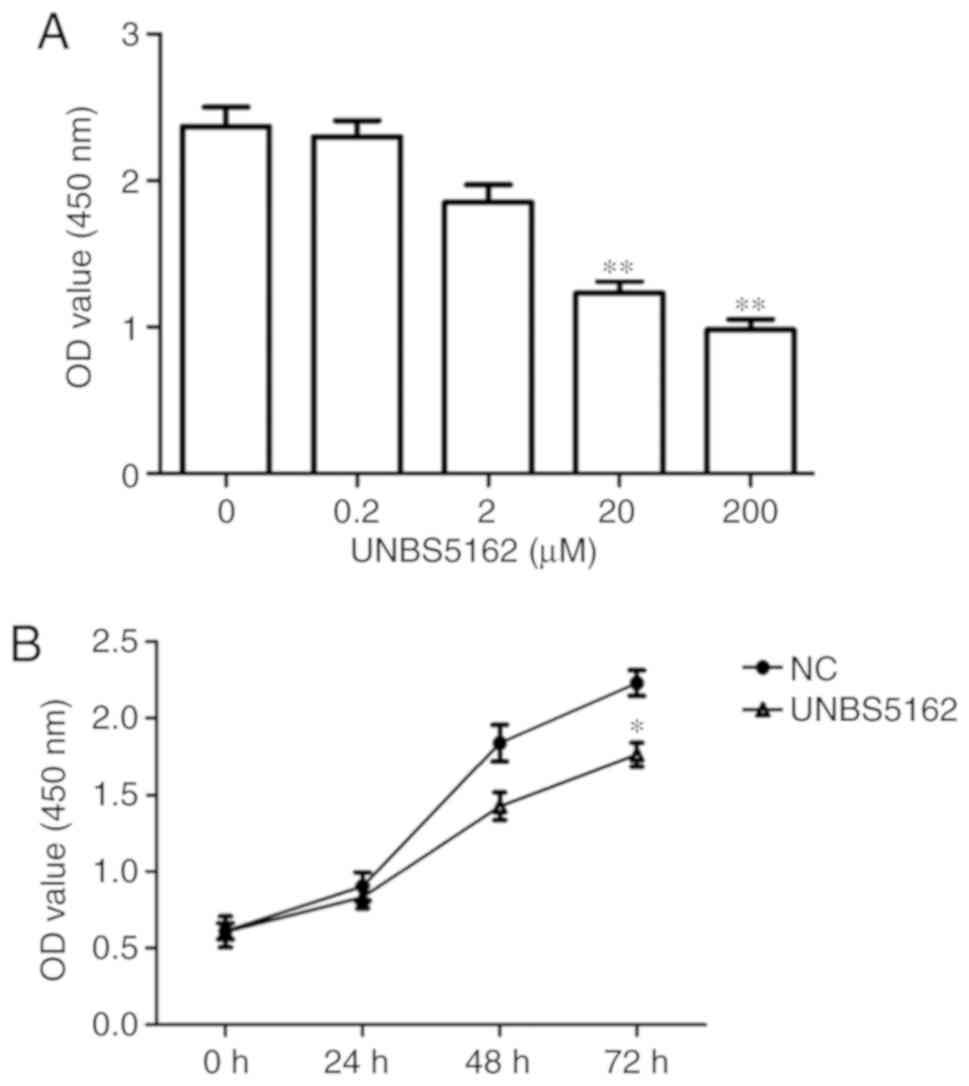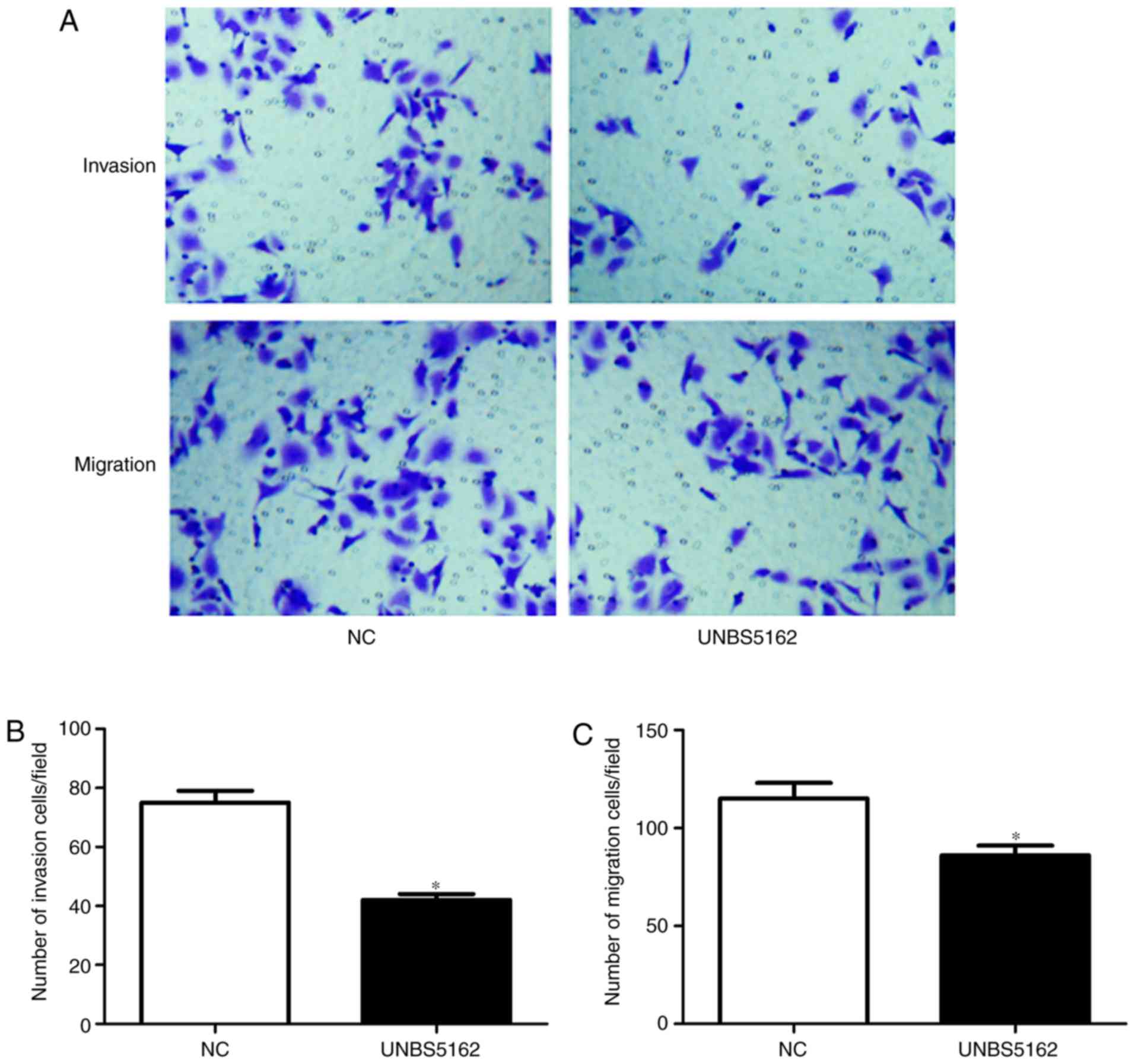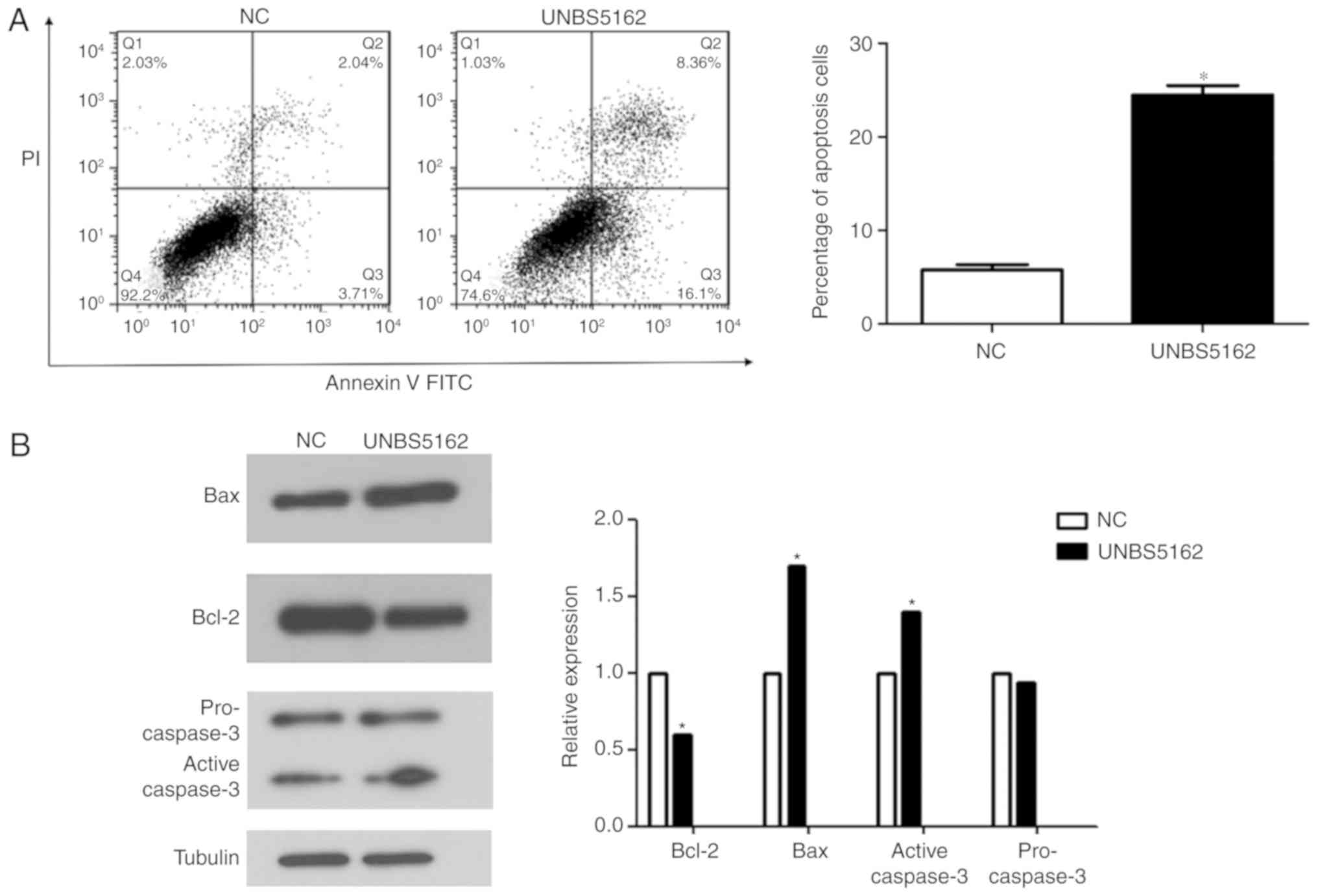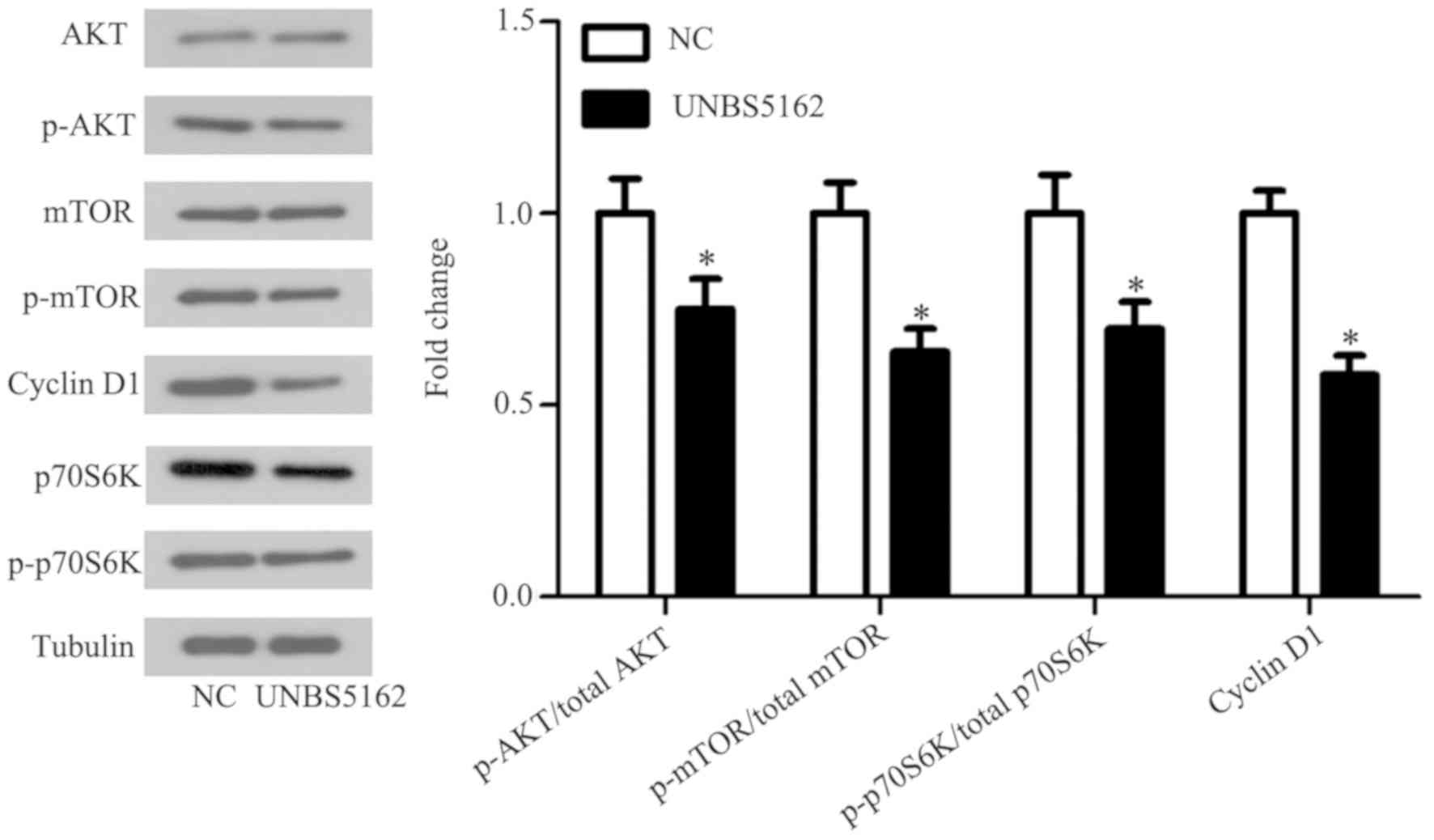|
1
|
Worzfeld T, Pogge von Strandmann E, Huber
M, Adhikary T, Wagner U, Reinartz S and Müller R: The unique
molecular and cellular microenvironment of ovarian cancer. Front
Oncol. 7:242017. View Article : Google Scholar : PubMed/NCBI
|
|
2
|
Yan B, Yin F, Wang QI, Zhang W and Li LI:
Integration and bioinformatics analysis of DNA-methylated genes
associated with drug resistance in ovarian cancer. Oncol Lett.
12:157–166. 2016. View Article : Google Scholar : PubMed/NCBI
|
|
3
|
Faber MT, Kjaer SK, Dehlendorff C,
Chang-Claude J, Andersen KK, Høgdall E, Webb PM, Jordan SJ;
Australian Cancer Study (Ovarian Cancer); Australian Ovarian Cancer
Study Group, ; et al: Cigarette smoking and risk of ovarian cancer:
A pooled analysis of 21 case-control studies. Cancer Causes
Control. 24:989–1004. 2013. View Article : Google Scholar : PubMed/NCBI
|
|
4
|
Weidle UH, Birzele F, Kollmorgen G and
Rueger R: Mechanisms and targets involved in dissemination of
ovarian cancer. Cancer Genomics Proteomics. 13:407–423. 2016.
View Article : Google Scholar : PubMed/NCBI
|
|
5
|
Correa RJ, Valdes YR, Peart TM, Fazio EN,
Bertrand M, McGee J, Préfontaine M, Sugimoto A, DiMattia GE and
Shepherd TG: Combination of AKT inhibition with autophagy blockade
effectively reduces ascites-derived ovarian cancer cell viability.
Carcinogenesis. 35:1951–1961. 2014. View Article : Google Scholar : PubMed/NCBI
|
|
6
|
Li S, Xu S, Tang Y, Ding S, Zhang J, Wang
S, Zhou G, Zhou C and Li X: Synthesis, anticancer activity and
DNA-binding properties of novel 4-pyrazolyl-1,8-naphthalimide
derivatives. Bioorg Med Chem Lett. 24:586–590. 2014. View Article : Google Scholar : PubMed/NCBI
|
|
7
|
Zhao L, Li J, Li Y, Liu J, Wirth T and Li
Z: Selenium-containing naphthalimides as anticancer agents: Design,
synthesis and bioactivity. Bioorg Med Chem. 20:2558–2563. 2012.
View Article : Google Scholar : PubMed/NCBI
|
|
8
|
Ingrassia L, Lefranc F, Kiss R and
Mijatovic T: Naphthalimides and azonafides as promising anti-cancer
agents. Curr Med Chem. 16:1192–1213. 2009. View Article : Google Scholar : PubMed/NCBI
|
|
9
|
Dumont P, Ribaucour F, Quaquebeke EV,
Darro F and Kiss R: UNBS3157, a new amonafide derivative with
improved in vivo efficacy and decreased toxicity. Cancer Res. 66
Supp:11052006.PubMed/NCBI
|
|
10
|
Van Quaquebeke E, Mahieu T, Dumont P,
Dewelle J, Ribaucour F, Simon G, Sauvage S, Gaussin JF, Tuti J, El
Yazidi M, et al:
2,2,2-Trichloro-N-({2-[2-(dimethylamino)ethyl]-1,3-dioxo-2,3-
dihydro-1H-benzo[de]isoquinolin-5-yl}carbamoyl)acetamide
(UNBS3157), a novel nonhematotoxic naphthalimide derivative with
potent antitumor activity. J Med Chem. 50:4122–4134. 2007.
View Article : Google Scholar : PubMed/NCBI
|
|
11
|
Liu C, Xing J and Gao Y: UNBS5162 inhibits
the proliferation of human A549 non-small-cell lung cancer cells by
promoting apoptosis. Thorac Cancer. 9:105–111. 2018. View Article : Google Scholar : PubMed/NCBI
|
|
12
|
He D and Zhang S: UNBS5162 inhibits the
proliferation of esophageal cancer squamous cells via the PI3K/AKT
signalling pathway. Mol Med Rep. 17:549–555. 2018.PubMed/NCBI
|
|
13
|
Wang B, Shen J and Wang J: UNBS5162
inhibits proliferation of human retinoblastoma cells by promoting
cell apoptosis. Onco Targets Ther. 10:5303–5309. 2017. View Article : Google Scholar : PubMed/NCBI
|
|
14
|
Mijatovic T, Mahieu T, Bruyere C, De Nève
N, Dewelle J, Simon G, Dehoux MJ, van der Aar E, Haibe-Kains B,
Bontempi G, et al: UNBS5162, a novel naphthalimide that decreases
CXCL chemokine expression in experimental prostate cancers.
Neoplasia. 10:573–586. 2008. View Article : Google Scholar : PubMed/NCBI
|
|
15
|
Agudelo D, Bourassa P, Bérubé G and
Tajmir-Riahi HA: Intercalation of antitumor drug doxorubicin and
its analogue by DNA duplex: Structural features and biological
implications. Int J Biol Macromol. 66:144–150. 2014. View Article : Google Scholar : PubMed/NCBI
|
|
16
|
Gellerman G: Recent developments in the
synthesis and applications of anticancer amonafide derivatives. A
mini review. Letters Drug Design Discov. 13:47–63. 2016. View Article : Google Scholar
|
|
17
|
Zhao J, Lu M, Lai H, Lu H, Lalevée J,
Barner-Kowollik C, Stenzel MH and Xiao P: Delivery of amonafide
from fructose-coated nanodiamonds by oxime ligation for treatment
of human breast cancer. Biomacromolecules. 19:481–489. 2018.
View Article : Google Scholar : PubMed/NCBI
|
|
18
|
Ge C, Chang L, Zhao Y, Chang C, Xu X, He
H, Wang Y, Dai F, Xie S and Wang C: Design, synthesis and
evaluation of naphthalimide derivatives as potential anticancer
agents for hepatocellular carcinoma. Molecules. 22:E3422017.
View Article : Google Scholar : PubMed/NCBI
|
|
19
|
Mahieu T, Mijatovic T, Quaquebeke EV,
Lefranc F, Vynckt FV, Darro F and Kiss R: UNBS5162 is a novel
naphthalimide derivative that induces autophagy and senescence in
human prostate cancer cells. Mol Cancer Ther. 6:3373S2007.
|
|
20
|
Antonini I, Volpini R, Dal Ben D,
Lambertucci C and Cristalli G: Design, synthesis, and biological
evaluation of new mitonafide derivatives as potential antitumor
drugs. Bioorg Med Chem. 16:8440–8446. 2008. View Article : Google Scholar : PubMed/NCBI
|
|
21
|
Mahadevan D, Northfelt DW, Chalasani P,
Rensvold D, Kurtin S, Von Hoff DD, Borad MJ and Tibes R: Phase I
trial of UNBS5162, a novel naphthalimide in patients with advanced
solid tumors or lymphoma. Int J Clin Oncol. 18:934–941. 2013.
View Article : Google Scholar : PubMed/NCBI
|
|
22
|
Mei JM and Niu CS: Effects of CDNF on
6-OHDA-induced apoptosis in PC12 cells via modulation of Bcl-2/Bax
and caspase-3 activation. Neurol Sci. 35:1275–1280. 2014.
View Article : Google Scholar : PubMed/NCBI
|
|
23
|
Zhuang RJ, Ma J, Shi X, Ju F, Ma SP, Wang
L, Cheng BF, Ma YW, Wang M, Li T, et al: Cold-inducible protein
RBM3 protects UV irradiation-induced apoptosis in neuroblastoma
cells by affecting p38 and JNK pathways and Bcl2 family proteins. J
Mol Neurosci. 63:142–151. 2017. View Article : Google Scholar : PubMed/NCBI
|
|
24
|
Nakamura Y, Ise K, Yamazaki Y, Fujishima
F, McNamara KM and Sasano H: Serotonin receptor 4
(5-hydroxytryptamine receptor Type 4) regulates expression of
estrogen receptor beta and cell migration in hormone-naive prostate
cancer. Indian J Pathol Microbiol. 60:33–37. 2017.PubMed/NCBI
|
|
25
|
Jordan VC: The new biology of
estrogen-induced apoptosis applied to treat and prevent breast
cancer. Endocr Relat Cancer. 22:R1–R31. 2015. View Article : Google Scholar : PubMed/NCBI
|
|
26
|
Shukla S, Fu P and Gupta S: Apigenin
induces apoptosis by targeting inhibitor of apoptosis proteins and
Ku70-Bax interaction in prostate cancer. Apoptosis. 19:883–894.
2014. View Article : Google Scholar : PubMed/NCBI
|
|
27
|
Zhou ZW, Li XX, He ZX, Pan ST, Yang Y,
Zhang X, Chow K, Yang T, Qiu JX, Zhou Q, et al: Induction of
apoptosis and autophagy via sirtuin1- and PI3K/Akt/mTOR-mediated
pathways by plumbagin in human prostate cancer cells. Drug Des
Devel Ther. 9:1511–1554. 2015. View Article : Google Scholar : PubMed/NCBI
|
|
28
|
Akinleye A, Avvaru P, Furqan M, Song Y and
Liu D: Phosphatidylinositol 3-kinase (PI3K) inhibitors as cancer
therapeutics. J Hematol Oncol. 6:882013. View Article : Google Scholar : PubMed/NCBI
|
|
29
|
Fang WL, Huang KH, Lan YT, Lin CH, Chang
SC, Chen MH, Chao Y, Lin WC, Lo SS, Li AF, et al: Mutations in
PI3K/AKT pathway genes and amplifications of PIK3CA are associated
with patterns of recurrence in gastric cancers. Oncotarget.
7:6201–6220. 2016. View Article : Google Scholar : PubMed/NCBI
|
|
30
|
Huang J, Zhang L, Greshock J, Colligon TA,
Wang Y, Ward R, Katsaros D, Lassus H, Butzow R, Godwin AK, et al:
Frequent genetic abnormalities of the PI3K/AKT pathway in primary
ovarian cancer predict patient outcome. Genes Chromosomes Cancer.
50:606–618. 2011. View Article : Google Scholar : PubMed/NCBI
|
|
31
|
Zhang L, Huo X, Liao Y, Yang F, Gao L and
Cao L: Zeylenone, a naturally occurring cyclohexene oxide, inhibits
proliferation and induces apoptosis in cervical carcinoma cells via
PI3K/AKT/mTOR and MAPK/ERK pathways. Sci Rep. 7:16692017.
View Article : Google Scholar : PubMed/NCBI
|
|
32
|
Halacli SO and Dogan AL: FOXP1 regulation
via the PI3K/Akt/p70S6K signalling pathway in breast cancer cells.
Oncol Lett. 9:1482–1488. 2015. View Article : Google Scholar : PubMed/NCBI
|
|
33
|
Wang HY, Yang SL, Liang HF and Li CH: HBx
protein promotes oval cell proliferation by up-regulation of cyclin
D1 via activation of the MEK/ERK and PI3K/Akt pathways. Int J Mol
Sci. 15:3507–3518. 2014. View Article : Google Scholar : PubMed/NCBI
|


















